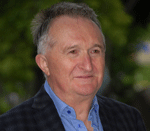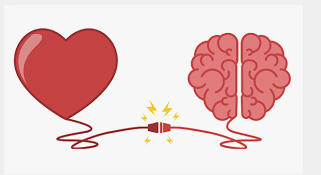During the past year of Covid 19, few of us have escaped unscathed. For those who remained working, but had to switch to remote work, there was the extra burden of childcare during school shutdowns, lack of support from the traditional workplace environment, learning new technical skills and zoom fatigue. For those out of work there was the constant worry about paying rent, mortgage and putting food on the table. Fatigue and constant fear were constant companions of front- line health care workers who had to treat those affected. Seniors living in care centers faced extra fears, witnessing the infection rates in their facilities. Those living alone and without the support of family and friends were affected extra hard by the isolation. The pandemic created even more hardships for those who were already struggling with addictions and homelessness. “JAMA Psychiatry released a study recently where they showed that ER visits across the country were at higher levels during the pandemic than in 2019 with mental health, substance abuse, overdose issues,” said Dave Marlon, an optimistic addiction treatment provider, who runs Vegas Stronger out of Las Vegas, NV, a nonprofit advocating for the end of the opiate epidemic as well as working to get homeless off the streets and into treatment. “The pandemic really accelerated a lot of the trends we were already seeing,” Marlon said. On top of that was the constant and overriding fear, uncertainty and isolation that we all experienced to some extent, regardless of our circumstances. COVID created a situation we had not experienced before, were not prepared for and were unsure of how we would come out of it. This caused unprecedented stress and pushed coping abilities to the limits. Despite this, there were certain tools that helped us cope and even come out of the crisis stronger.
5 Ways Emotional Intelligence Can Help Us Come Through This Difficult Time.
Be aware of what we can control and focus on that. Those who made the most of their time unprecedented during the pandemic deliberately chose to put their time and energy focusing on what they could control rather than outside forces outside of their control. They let go of spending time thinking of what others were doing, actions of government and toilet paper shortages. Instead they chose to focus on positive ways of spending their time and energy, getting scientific valid information and following it, keeping up a healthy diet, exercise and sleeping patterns. While staying informed, they chose their sources carefully and ignored all the misinformed, inaccurate and totally lacking in factual evidence information going around.
Being Aware Of Our Anxiety Levels And Look For Ways To Reduce Them When Possible.
Are you feeling particularly anxious going out shopping? Choose an off time such as evenings when there are less people out. Take turns shopping with a family member, neighbor or friend to decrease your chances of virus exposure. If financially able, consider a home delivery service. Follow all scientific advice when it comes to distancing and wearing a mask.
Ask For and Provide Comforting Support Through Phone Or Visual Media.
Being forced to distance from family and loved ones was one of the most difficult parts of these times for many of us. Although realizing that it is not the same as physical touch and hugs, emotionally intelligent people were very aware of the importance of reaching out and maintaining ongoing contact with those important to them in their lives. They did not wait for others to reach out, but took the initiative, understanding that it might be difficult for others to take the lead. This helped alleviate some of the feelings of isolation, anxiety and disconnection that we all experienced to some degree during this time. Able and willing to be vulnerable, they were able to reach out and ask for help when they felt the need.
Having a Goal, Something to Work Towards, or Look Forward to Post Pandemic.
For those who lived through it, Covid 19 will define us for the rest of our lives. When we look back, we will find that those who had a future vision that they were working towards were better able to cope with these times. Perhaps beginning to work towards a goal or dream that has been dormant will take our minds off our present situation and help us focus on something positive that motivates and excites us. Is now a good time to write that book, learn to play a musical instrument or take up that hobby we didn’t have time for before?
Ask Yourself How You Want to be Able to Look Back on This Time.
One of the ways of coping through difficult times that I talk about in my book, The Other Kind of Smart, www.theotherkindofsmart.com, is imagining myself looking back upon an event or situation a number of years down the road. This too will pass, and we will look back on it. When I asked myself that question, it was important that I remember this time as being a productive growth period. I did not want to look back and see this time wasted. “A lot of the people we’ve seen thrive during the pandemic have found ways to strengthen their mental health, mindfulness, pick up new hobbies, and find ways to stay connected while staying distanced,” said Marlon. As a result, this time has resulted in increased writing, learning and exploring new interests. I always wanted to learn to play the blues harmonica and finally took online courses. This time provided me with an opportunity to learn a skill which will provide me with pleasure for the rest of my life. Look for opportunities to start doing something that will provide you with feelings of pride and satisfaction when you look back on this time.

